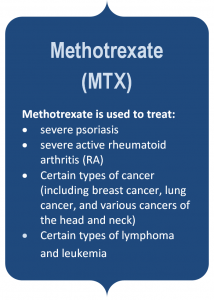Testing for EDDP provides more assuredness for those treating methadone patients
Drug abuse is a global health and safety issue. Millions of people in the United States aged 12 or older misuse prescription opioids. New drugs are constantly entering the marketplace, while familiar drugs are being abused in new ways. Methadone (Dolophine®) is a synthetic opioid medication used to treat opioid use disorder (OUD). Opioid misuse includes a variety of behaviors including diverting prescription opioids for non-medical use, forging prescriptions, or altering the route of administration into an illicit marketplace for various purposes.
Safety net healthcare settings like hospitals, pain management clinics, and behavioral health centers need viable drugs of abuse testing options for the rapid detection of methadone use. Methadone treats opioid dependence and chronic pain severe enough to require daily, around-the-clock, long-term opioid treatment, and for which alternative treatment options are inadequate. According to the Substance Abuse and Mental Health Services Administration (SAMHSA), methadone helps patients sustain long-term success and reclaim active and meaningful lives after addiction to heroin and narcotic pain medication.
Methadone is a Schedule II controlled substance under the U.S. Controlled Substance Act for its potential for abuse and risk of dependence. Its major metabolite is EDDP (2-ethylidene-1, 5-dimethyl-3, 3-diphenylpyrrolidine) and an EDDP assay may be more appropriate than ordering a methadone assay for two reasons.
First, it is sometimes necessary to test for the metabolite rather than the original parent drug to ensure patients have taken their medication and to ensure the urine sample has not been spiked with methadone. Additionally, there are many drugs that interfere with methadone metabolism. These interactions can affect the parent methadone levels seen in urine, which makes EDDP a more useful marker in identifying methadone use for some patients.
Identification through drugs of abuse testing is the first step in identifying, treating, and rehabilitating in overdose and abuse situations. However, data suggests that primary care clinicians’ inadequate education and training leads to a lack of confidence in interpreting and implementing urine toxicology tests which may impact their management of patient opioid misuse and/or substance use.
Lab professionals need to get it right the first time for their patients. It is essential to get accurate results and the best outcome, but the busy nature of lab professionals’ work may make it more challenging to choose the right assay.
SEKISUI Diagnostics has a test for EDDP, the key metabolite of methadone, that can be used on many automated analyzers. The ARK™ EDDP Assay is an immunoassay intended for the qualitative and/or semiquantitative determination of EDDP in human urine at a cutoff concentration of 100 ng/mL and 300 ng/mL. The ARK™ EDDP Assay is:
- A simple and rapid analytical screening procedure for detecting EDDP
- Sensitive and specific for detection of EDDP in human urine
- Low cross-reactivity to Methadone
- 0-1000 ng/mL calibration range; 100 ng/mL and 300 ng/mL cutoffs
It is a simple and rapid analytical screening procedure for detecting EDDP. Importantly, it has a low cross-reactivity to the parent drug – ensuring patients are taking their medication and there are no positive results due to urine spiking by non-compliant patients.
An EDDP assay can be ordered to determine that a patient has taken methadone and is not adding it to a urine specimen. Methadone is safe and effective when taken as prescribed. It is specifically tailored for the individual patient and is not to be shared with or given to others. Side effects need to be taken seriously and some may result in an emergency. They are:
- Difficulty breathing or shallow breathing
- Lightheaded or faint
- Hives or a rash; swelling of the face, lips, tongue, or throat
- Chest pain
- Fast or pounding heartbeat
- Hallucinations or confusion
It is important for methadone patients to stay on a long-term treatment plan and complete it. Testing for EDDP can reduce false positive results from illicit addition of methadone to a urine sample. The ARK™ EDDP Assay helps lab professionals authentically test methadone patients and get it right the first time.



Share Article